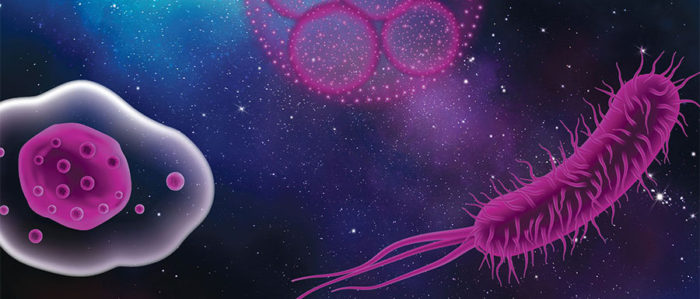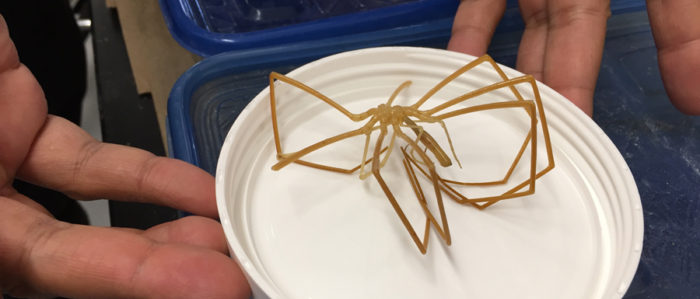How Does Life Begin?
PhD student Lena Vincent pursues the biggest question in her research on the chemical origins of life.
How does a spider weave its web?
Graduate student Emily Setton studies spiders in the lab of Integrative Biology Professor Prashant Sharma. Setton wants to understand, at a genetic level, how spiders' bodies make spinnerets - the appendages that allow them to weave their amazing webs.
Today’s middle school students study yesterday’s people of Aztalan
Every few summers, the park becomes an active archaeological site when Sissel Schroeder leads a field school there, to better understand those who lived at Aztalan nearly 1,000 years ago.
Heavier rains and manure mean more algae blooms
On June 6, 2018, the Center for Limnology reported that a toxic algae bloom had begun to spread across Lake Mendota. It quickly led to the closure of beaches around Madison’s largest lake.
Thank the moon for Earth’s lengthening day
A new study that reconstructs the deep history of our planet’s relationship to the moon shows that 1.4 billion years ago, a day on Earth lasted just over 18 hours.
Homo naledi had a tiny brain but it looked a lot like ours
Scientists and nonscientists alike have often associated larger brains with greater intelligence, but a new study may challenge that notion. “Maybe brain size isn’t all it’s cracked up to be,” says John Hawks, one of the study’s corresponding authors.
Spiders and scorpions have co-opted leg genes to build their heads
New research shows that the common house spider and its arachnid relatives have dispensed with a gene involved in creating segmented heads, instead recycling leg genes to accomplish the task.
Oldest fossils ever found show life on Earth began before 3.5 billion years ago
Researchers at UCLA and the University of Wisconsin–Madison have confirmed that microscopic fossils discovered in a nearly 3.5 billion-year-old piece of rock in Western Australia are the oldest fossils ever found and indeed the earliest direct evidence of life on Earth.
All hands on deck to understand, predict, prevent abrupt ecological change
In 2011, Lake Erie turned into a toxic pea soup. One-sixth of the lake harbored a thick and deadly algal bloom that killed fish, closed beaches and struck a blow to Toledo, Ohio’s tourism industry. The bloom was three times larger than any algal bloom ever recorded there. The contamination was forecast by ecologists in 2011, said Stephen Carpenter, newly retired as director of the Center for Limnology, at a recent campus symposium centered around a new effort to understand, predict and prevent these kinds of abrupt ecological changes.
L&S Communications
South Hall, Bascom Mall
Madison, WI 53706
info@ls.wisc.edu










